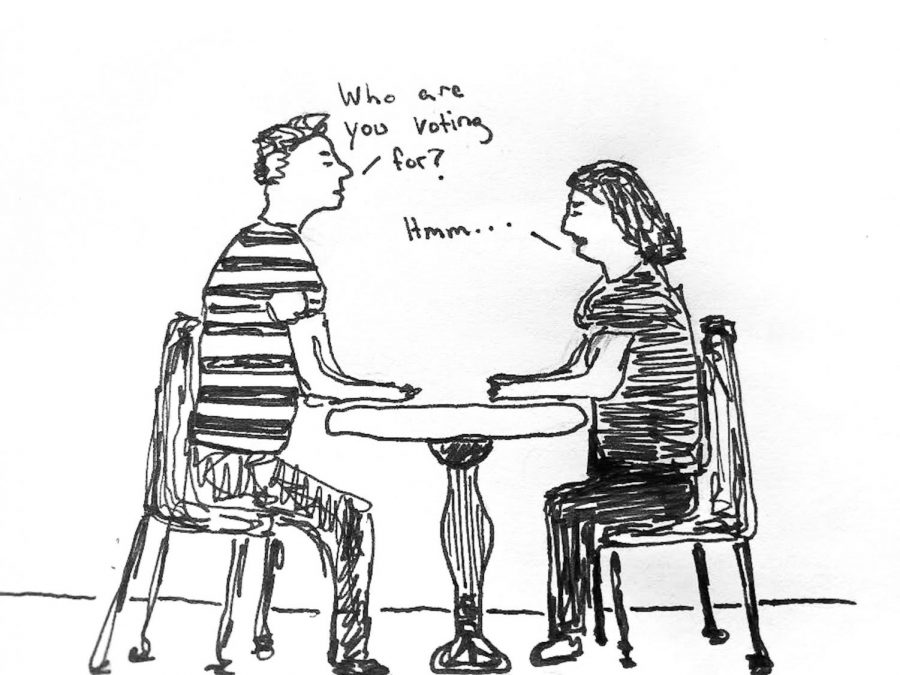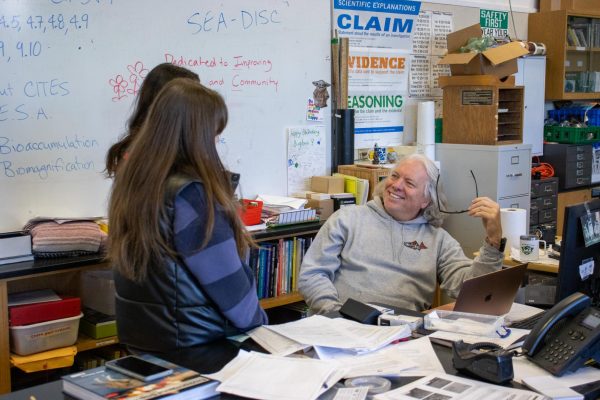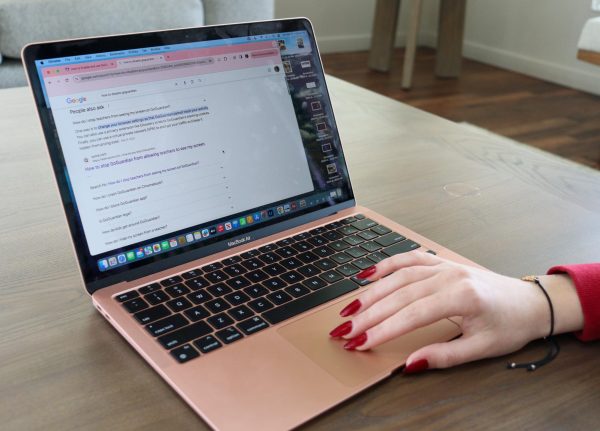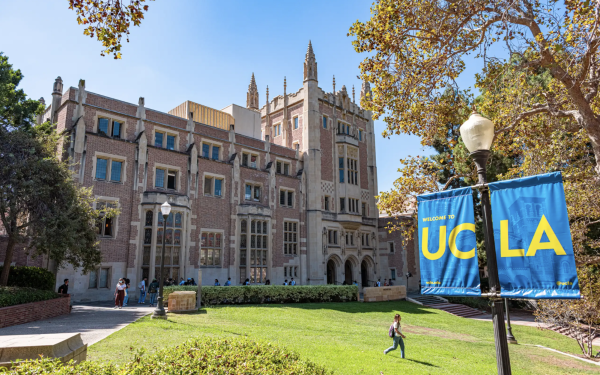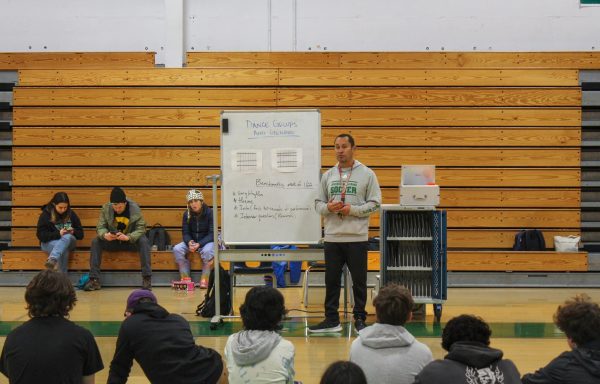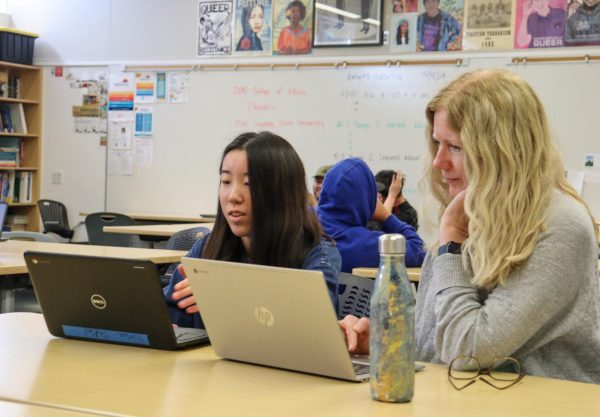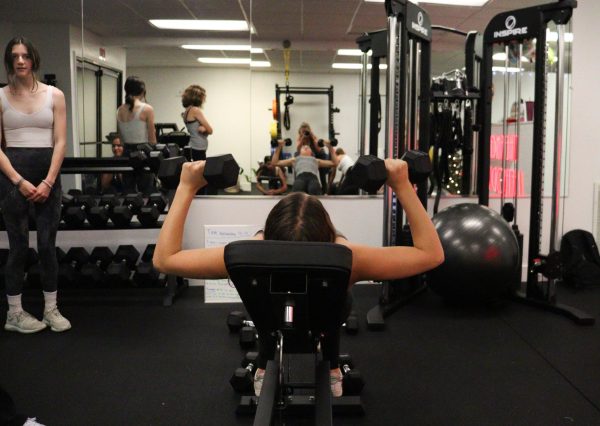First time voters eager to make an impact in 2020 presidential election
Illustration by Fiona Swan showing two first time voters conversing about the upcoming election.
Tuesday, Nov. 3, 2020. A day surrounded by emotions of all descriptions. This is the day when the first age group born after the catastrophic events of 9/11 will vote.
This is the day when lives will change and history will be made; the 2020 presidential election.
For many first-time voters, the upcoming election is an exciting opportunity to have a voice in the important problems facing our country. Some have already voted in the primaries, like 2020 Marin Catholic graduate Colette Postaer. “[Voting] felt really, really cool… so walking out [of the polling booths] was incredible, I just felt very powerful,” Postaer said.
Many young voters are eager to influence the values of their country. According to the Census Bureau, “Youth voter turnout was up dramatically in the 2018 general election, jumping from 20% in 2014 to 39%.”
According to Stewart Hall graduate Ryan Darwin, Marin will have no shortage of youth voters. “Considering the results of the last election and how close they were, I’ll actually have… an ability to make an impact with my vote,” Darwin said.
Climate change is a common issue among new voters in Marin.“I think the green new deal is super important,” said Mateo Thomas, a Marin Catholic alumni. If put into action, The Green New Deal would address climate change and economic inequality by reducing the use of fossil fuels in the United States, as well as curbing greenhouse gas emissions.
Ian Casey, a High School 1327 (HS 1327) alumni also prioritizes environmental action. “Climate change is number one for me,” Casey said.
Another topic mentioned by Thomas is immigration, an important and controversial issue worldwide. Currently, President Donald Trump and his administration are seeking to reduce legal immigration by decreasing the amount of Permanent Resident Cards.
“For those here illegally today, who are seeking legal status, they will have one route and one route only. To return home and apply for reentry like everybody else, under the rules of the new legal immigration system that I have outlined above,” said President Trump.
Another popular issue among new voters is the subject of gun ownership and usage in the U.S. “Gun control is something that [I] definitely think needs to be addressed,” Darwin said. The Trump administration is known for believing that any restrictions on guns will violate their second amendment rights.
On the other hand, Democratic Presidential Nominee Joe Biden believes in more enforced gun control.
According to the Washington Post, seven months into this year the United States has already experienced more mass shootings than in 2013 or 2014 alike.
“Human rights… a lot of people are not just women and not just women that look like me and you, all different types of people,” Postaer said, expressing concern for human rights to be addressed in the next four years.
According to the Quinnipiac National Poll (QNP) on racial inequality, Joe Biden would be 58 percent more effective in handling racial injustice in the United States than current president Donald Trump’s 36 percent.
Continuing statistics from the QNP state that in this year’s upcoming election, 57 percent of Generation Z (Gen Z) voters say they will vote for Biden, while 33 percent say they will vote for Trump. Despite this data, many young voters express a dislike for Trump rather than an adoration for Biden.
Calvin McCarthy, a first time voter and senior at HS 1327, is familiar with this trend. “As the media would call it, … ‘settling for Biden.’” McCarthy said.
Data shows that race also impacts many young voters’ choices. Only 22 percent of people of color say they will vote for Trump in November, while 67 percent say they will vote for Biden. Gen Z is also the most diverse group, with 40 percent of people of color, compared to the 29 percent of Millennials who are people of color.
Many first-time voters said that they consider themselves fairly informed regarding the main issues in our world today. “I believe I am [an informed voter]. I think that the policies could be explained better for the young voters,” Casey said.
Many young voters see the upcoming election as an opportunity to make their voices heard through the candidate they vote for. By not voting, people lose the ability to have influence over the 2020 presidential election. The day it all comes down to is Tuesday, Nov. 3.
Your donation will support the student journalists of Archie Williams High School. Your contribution will allow us to purchase equipment and cover our annual website hosting costs. Each donation will receive a magazine subscription for a year (6 copies a year), and become a part of the important work our publication is doing.
$35 -- Subscription to the magazine
$50 -- Silver Sponsorship
$75 -- Gold Sponsorship
$100 -- Platinum Sponsorship

Avery is a senior, starting her second year in journalism. She enjoys hikes with her family, spending time with her friends, being at the beach, and driving...
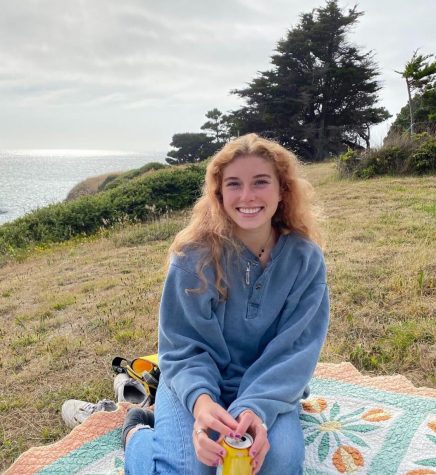
Fiona Swan, is a junior at High School 1327 and this will be her first year in Advanced Journalism. She spends most of her free time surfing, discovering...


